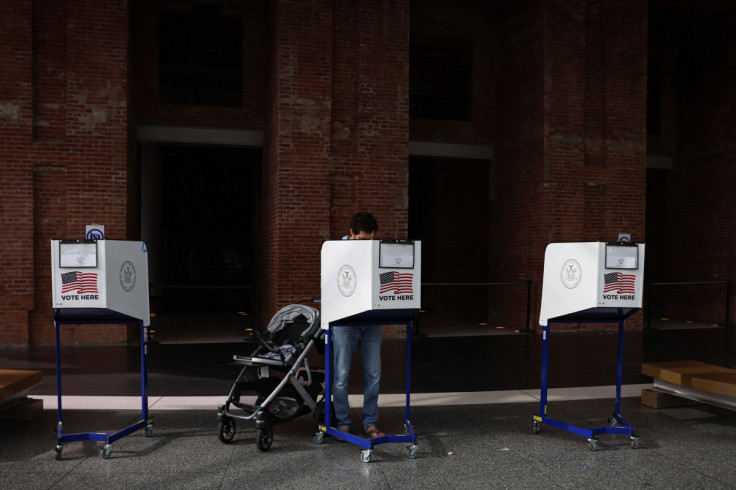By Marvie Basilan Chorawan
11/14/22
KEY POINTS
In several states, a majority of young women also voted for Democrats for senate seats
The overturning of Roe v. Wade has sparked debates on abortion rights
Ahuge percentage of young women voted for Democrats in the midterm elections amid debates over abortion rights in the country. Exit polls showed women under 30 played a key role in crumbling the Republicans' hopes for a "red wave."
Women aged between 18 and 29 went 72% for House Democrats and only 26% supported Republicans, exit polls jointly conducted by CNN, ABC, CBS and NBC showed. A whopping 57% of women aged 30-44 supported Democrats, while only 41% voted for Republicans in the House.
For Senate seats, the majority of women under 30 voted for Democrats. 76% of young women in Arizona voted for Mark Kelly, while 20% voted for Blake Masters. Even Florida, which turned red in the midterms, saw 57% of women under 30 voting for Val Demings.
In Georgia, 63% of young women voted for the Democratic Party's Raphael Warnock, while 34% voted for the GOP's Herschel Walker. In Nevada, 64% of women aged 18-29 voted for Catherine Cortez Masto, while 31% voted for Adam Laxalt.
A similar turnout was seen in New Hampshire, where 74% of women in the 18-29 age group voted for Democrat Maggie Hassan, while 23% voted for Donald Bolduc. The same was the case in Pennsylvania, where 70% of women under 30 voted for John Fetterman, while 28% voted for Mehmet Oz.
READ MORE
Trump Faces Criticism For Republican Defeats
"I think most young women feel that the best thing for their rights and for the future of the country is to vote for Democrat," 24-year-old Elizabeth Rickert, from Ohio, told The Hill.
Rickert further explained she thinks younger women believe "voting Democrat is the only path forward" as the GOP "becomes more extreme and moves away from the core American principals of democracy and rights for all."
Some observers believe a predicted "red wave" in the midterm elections was ultimately thwarted by "people motivated by the erosion of abortion rights," Politico reported.
"Had the Supreme Court not overturned Roe v Wade back in June, the Democrats wouldn't have had that to energize voters," Jon Taylor, a political science professor at the University of Texas, said, adding the issue "actually helped the Democrats stave off that Red Wave."
The U.S. Supreme Court overturned the landmark Roe v. Wade ruling that legalized abortion at the national level, triggering a wave of protests. Republicans have been pushing to either completely ban or limit the procedure.
The decision is believed to have played a key factor in the midterms, with concerned young women turning up in large numbers. "Abortion is a winning issue and will continue to be in elections to come," said Mini Timmaraju, president of the nonprofitNaral Pro-Choice America.
Despite the high turnout of young female voters for Democrats, some experts note the extent to which the votes of women under 30 have actually affected the results is unclear and will not be determined until after election results are officially counted.
David Shor, founder of Democratic data analysis firm Blue Rose Research, pointed out that numbers from early voting do not necessarily support the notion that young voters had a very crucial effect on the victory of Democratic candidates, the New York Times reported.
President Joe Biden last week said the turnout of young voters "sent a clear and unmistakable message," that they want to "protect the right to choose."

© Copyright IBTimes 2022. All rights reserved.












